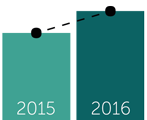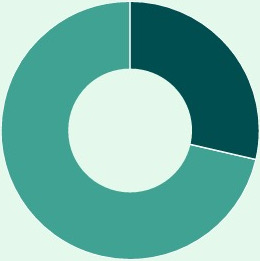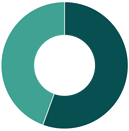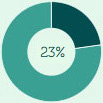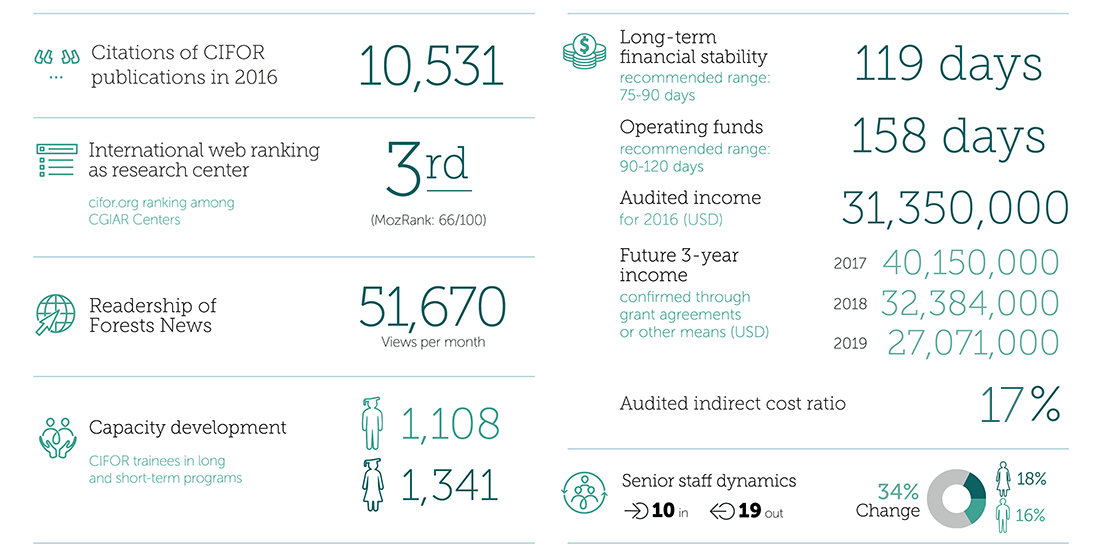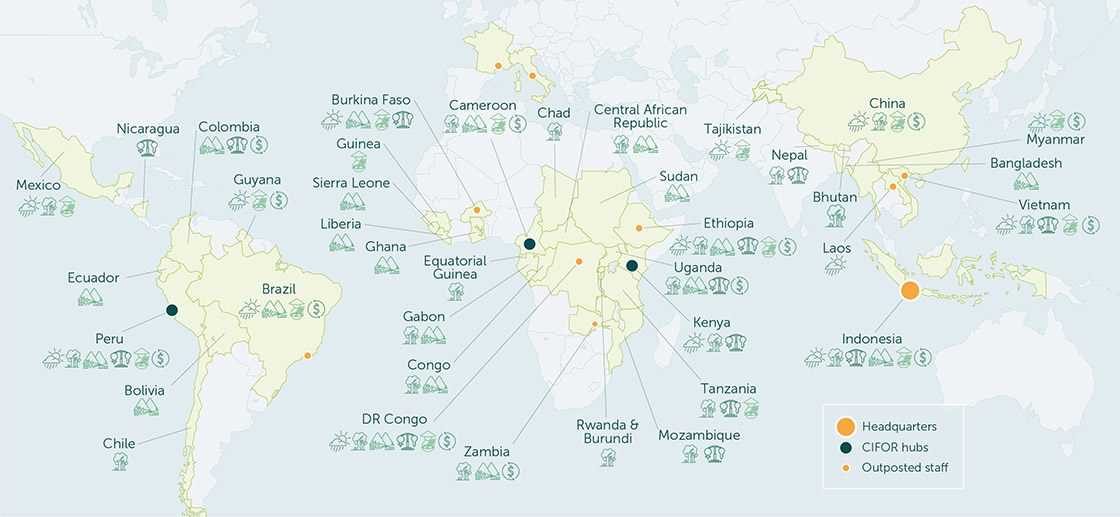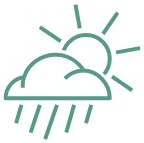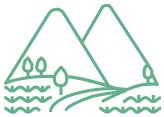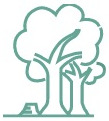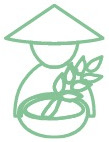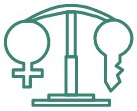
Monitoring, evaluation and impact assessment
Research for change – not simply for knowledge – is the first guiding principle outlined in CIFOR’s Strategy 2016–2025
How can CIFOR create outcomes that contribute to long-term positive impacts on poverty, food security, health and nutrition and ecosystems? In 2016, the Research to Impact team (RTI) sought concrete answers to that question, through applying an integrated planning, monitoring and learning strategy. The team worked towards embedding design, monitoring and assessment tools that will enable CIFOR to better understand what approaches to influencing policy and practice are working in different contexts and why.
Working with scientists, the team used theory of change as a design tool to establish an overarching hypothesis for how change would occur in a given context, as a framework for monitoring outcomes for continuous improvement, and to structure assessments of project outcomes. Over time, the team will be able to draw lessons from these experiences to inform approaches to project design and implementation.
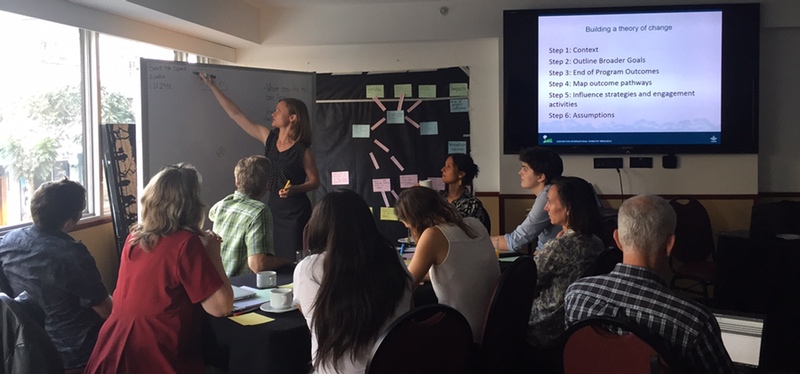
2016 activities
- 3 Impact assessments
- 7 Theories of change
- 17 Proposals and results frameworks
- 2 Outcome story reflection workshops attended by 22 scientists, covering 19 projects
The outcome story reflection workshops gave us the chance to pinpoint specific enabling factors and develop strategies towards influencing policy and achieving real changes on the ground.
Amy Duchelle, CIFOR Scientist
A new test for gender relevance
The Gender integration team of the CGIAR Research Program on Forests, Trees and Agroforestry (FTA) developed the Gender Equity in Research Scale (GEIRS), a tool that establishes standards, measures gender-sensitive research practice, and streamlines gender into monitoring and evaluation procedures. In 2016, GEIRS was trialed on 19 gender-relevant CIFOR projects. Of these, eight displayed good practices or were ‘gender sensitive’ in design, implementation and dissemination, and five demonstrated they were conscious of gender considerations, i.e. ‘gender aware’. The remaining six were not yet practicing good gender integration across the research cycle. The tool is designed to assess current practice but also offer guidance on how to improve practice in the future. Good practice in gender-sensitive research is now a core component in CIFOR’s design quality criteria, and the GEIRs will be integrated into monitoring and evaluation of CIFOR work in the future.
Evaluation: One funding partner, 32 sub-projects, 5 years of data and 3 in-depth case-studies
Between 2012 and 2016, the UK Department for International Development (DFID)-funded KNOWFOR program supported 32 projects. KNOWFOR’s hypothesis was that there are three factors that most effectively facilitate knowledge uptake, and policy and practice influence:
- Tailoring knowledge for specific audience and priority groups;
- Dialogue, engagement and exchange of ideas and knowledge co-production with decision-makers;
- Outcomes oriented design, monitoring and learning.
The RTI team developed a shared framework to test this hypothesis across the different projects.
Key results (2013–2016)
- Short-term impacts: 10 research projects contributed to policy or practice changes with regards to bushmeat, forest landscape restoration, forests and livelihoods, climate change, fire and haze and corporate zero deforestation pledges, small scale producer associations, forests and nutrition.
- End-of-project outcomes: 85% of completed projects demonstrated that they had equipped policymakers and practitioners.
- Knowledge sharing: 343 publications (target: 98), 887,288 downloads, 904,768 views.
- Outreach and engagement: 615 processes*, 17,480 attendees (38% women)
* conferences, workshops, presentations, training sessions or roundtables. - Gender: 119 knowledge products, of which over 50% were gender-relevant, 15% gender-specific (target: 29 products, 30% gender relevant).
- DFID-led survey of knowledge users: 85% had accessed forest-related information from CIFOR, 88% said that CIFOR support was either quite relevant (44%) or highly relevant (44%) to their work.
Lessons learned
Between 2012 and 2016, KNOWFOR projects showed increased use of outcome-oriented design tools. This was associated with more engagement with knowledge users at the design stage and during research, as well as greater influence on debates at the end of the project. There was also a correlation between the length of the project and how effectively decision makers were equipped (longer projects were able to have stronger influence).
This suggests that reaching target audiences means bringing knowledge users into the research process.
The DFID KNOWFOR evaluation shows what can be substantiated and learned when we apply a consistent planning, monitoring and learning system to a portfolio of work from the beginning.
Bethany Davies, Team Leader, Research to Impact
Photo by O. Girard/CIFOR.


























